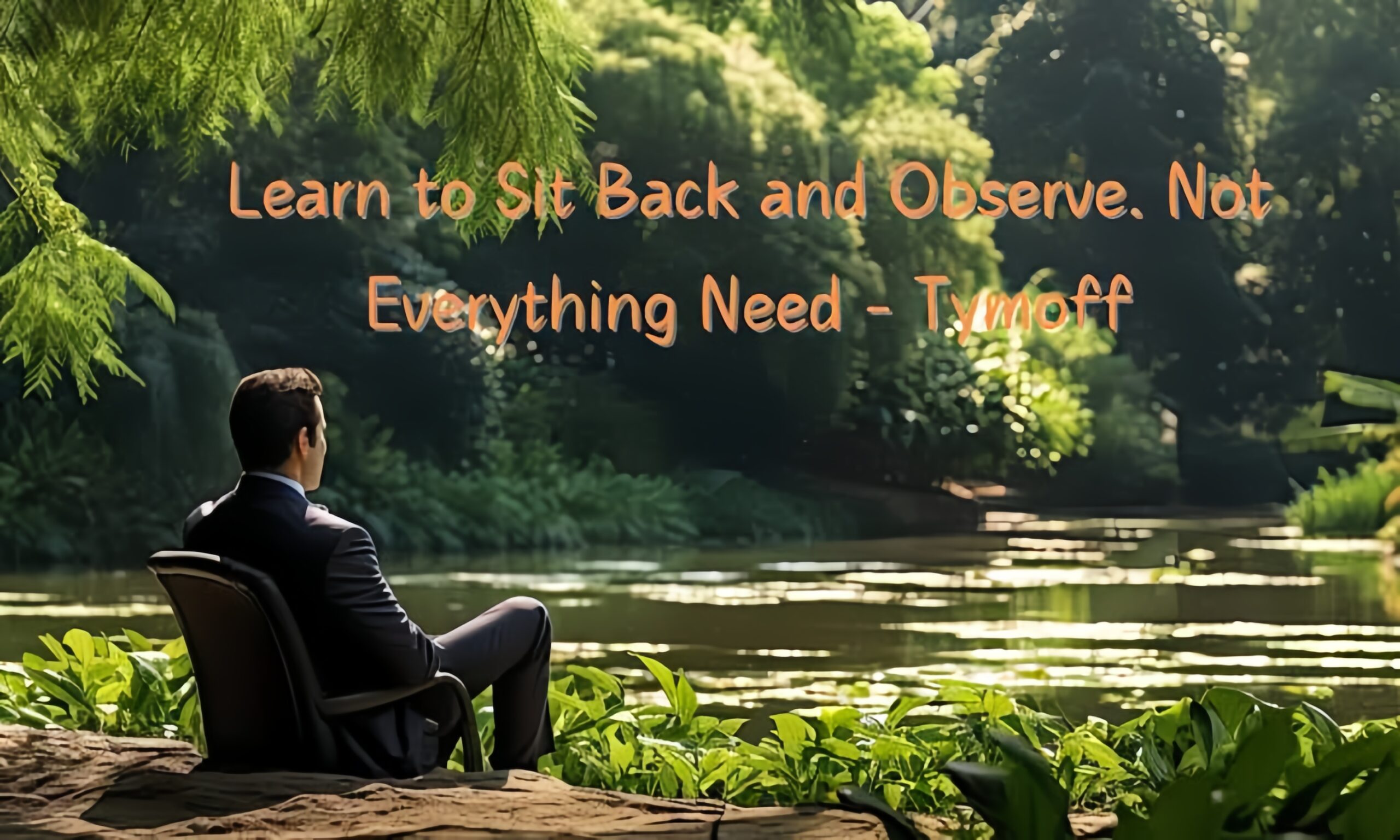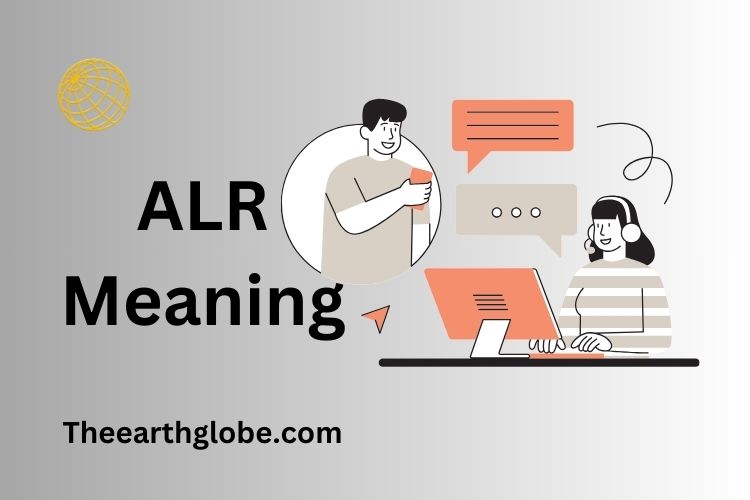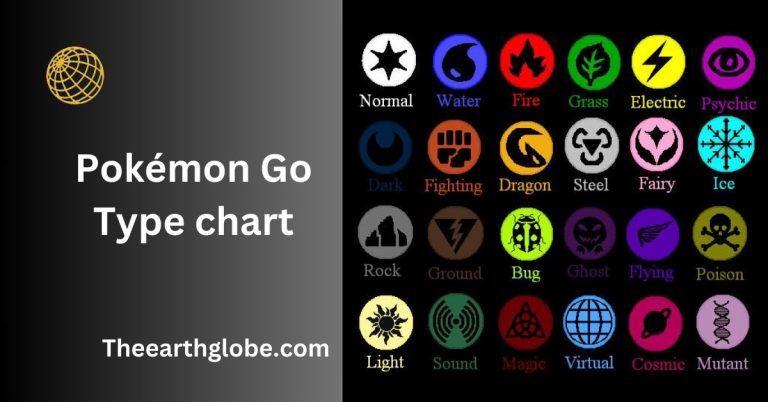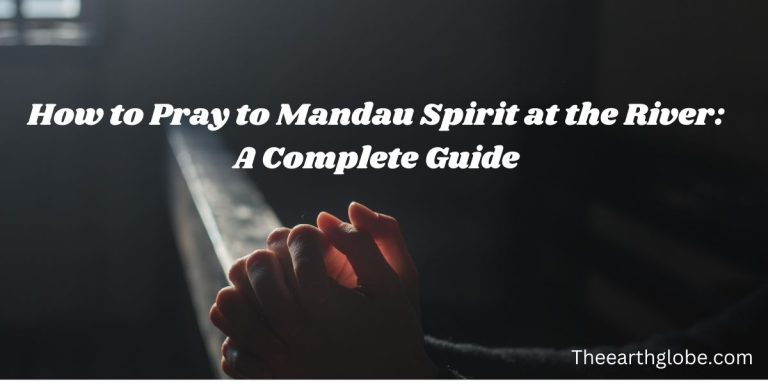Observation: Learn to sit back and observe. Not everything needs a reaction. – Tymoff
This clever idea comes from someone named Tymoff, and it has a lot to teach us about life. In this article, we’re going to explore what this saying means and why it’s so important.Sometimes, we’ve felt like we need to do something about everything that happens around us. But Tymoff suggests that there’s value in simply watching and learning. Let’s dive in and see how this simple idea can make our lives better!
What Does “It’s” Saying Mean?
1. Learn to sit back
This means to relax and not jump into action right away.
2. And observe:
This part tells us to watch carefully and pay attention.
3. Not everything need:
This suggests that not all situations require us to do something.
So, Tymoff is saying that it’s good to sometimes just watch what’s happening around us. Instead of always trying to fix or change things.
Why is Observing Important?
Observing is like being a detective in your own life. Here’s why it’s so valuable:
1. Learning:
When we watch, we can learn a lot about how things work.
2. Understanding:
Observing helps us understand people and situations better.
3. Avoiding Mistakes:
Sometimes, by watching first, we can avoid doing the wrong thing.
4. Saving Energy:
We can save our energy for things that really matter.
5. Gaining Wisdom:
The more we observe, the wiser we become.
How to Become a Good Observer
Being a good observer is a skill, and like any skill, it takes practice. Here are some tips to help you become better at observing:
1. Be Quiet:
Try to stay silent and just watch what’s happening.
2. Use All Your Senses:
Don’t just look, but also listen, smell, and feel what’s around you.
3. Be Patient:
Good observation takes time. Don’t rush to conclusions.
4. Stay Curious:
Wonder about why things happen the way they do.
5. Don’t Judge:
Try to watch without deciding if things are good or bad.
6. Take Mental Notes:
Try to remember what you see and hear.
7. Look for Patterns:
Notice if certain things happen over and over again.
When should we sit back and observe?
While observing is important, it’s also good to know when it’s the right time to do it. Here are some situations where sitting back and watching can be really helpful:
1. When You’re New:
If you’re in a new place or situation, watching first can help you understand how things work.
2. During Conflicts:
Sometimes, watching a disagreement instead of jumping in can help you understand both sides.
3. In Nature:
Observing animals and plants can teach us a lot about the world.
4. In Social Situations:
Watching how people interact can help you understand relationships better.
5. When Learning Something New:
Observing experts can teach you a lot about a new skill or subject.
6. During Problem-Solving:
Sometimes, watching a problem can help you see the solution more clearly.
7. In Unfamiliar Cultures:
Observing local customs can help you respect and understand different ways of life.
The Benefits of Not Always Taking Action
Tymoff’s saying tells us that not everything needs our action. This idea has many benefits:
1. Reduces Stress:
When we don’t feel like we have to fix everything, we feel more relaxed.
2. Saves Time and Energy:
By not acting on every little thing, we save our strength for what’s really important.
3. Improves Decision Making:
Taking time to observe helps us make better choices.
4. Increases Patience:
Learning to sit back helps us become more patient people.
5. Enhances Relationships:
Sometimes, just listening and observing can make our relationships stronger.
6. Promotes Self-Reflection:
When we’re not always acting, we have more time to think about ourselves.
7. Encourages Mindfulness: Observing helps us stay in the present moment.
The Difference Between Observing and Ignoring
It’s important to understand that observing is not the same as ignoring. Here’s how they’re different:
1. Attention:
When you observe, you pay close attention. When you ignore, you don’t pay attention at all.
2. Learning:
Observing helps you learn, while ignoring doesn’t teach you anything.
3. Awareness:
When you observe, you’re very aware of what’s happening. Ignoring means you’re not aware.
4. Choice:
Observing is an active choice to watch and learn. Ignoring is choosing not to engage at all.
5. Responsiveness:
Good observers can still respond if needed, but people who ignore can’t.
The Role of Observation in Different Areas of Life
Tymoff’s idea about observing can be useful in many parts of our lives:
1. In School:
Observing can help you understand lessons better and learn from your classmates.
2. At Home:
Watching family dynamics can help you understand your relatives better.
3. In Nature:
Observing animals and plants can teach you about the environment.
4. In Sports:
Watching skilled players can help you improve your own game.
5. In Art:
Observing the world around you can inspire great artwork.
6. In Science:
Many scientific discoveries come from careful observation.
7. In Business:
Observing market trends can lead to smart business decisions.
How Observation Enhances Creativity
Sitting back and observing can boost your creativity in many ways:
1. Inspiration:
Watching the world can give you new ideas for art, writing, or problem-solving.
2. Details:
Observing helps you notice small details that can make your work more interesting.
3. Understanding:
The more you watch, the more you understand how things work. This can lead to new ideas.
4. Patterns:
Noticing patterns through observation can help you create new patterns in your work.
Read also: “It is Not Wisdom but Authority That Makes a Law” – Insights by Tymoff
Conclusion
Observing people can help you understand emotions better. This skill is great for storytelling.Timoff’s saying, “Learn to sit back and observe. It teaches us that there’s great value in sometimes just watching and learning. It’s better than always jumping into action.By observing well, we can learn more about the world around us. It will help us make better decisions and understand people better. We’ve reduced stress, saved energy, and become more patient and empathetic.
Remember, observing doesn’t mean ignoring or not caring. It means paying careful attention and learning before we’ve acted. It’s about finding the right balance between watching and doing.So next time you feel the urge to jump into a situation, try taking a step back first. Sit back, observe, and see what you can learn. You might be surprised at how much you gain just by watching!
FAQs
1. Does “learn to sit back and observe” mean I should never take action?
No, it doesn’t mean never take action. It means to watch and understand before you act. Sometimes you’ll need to do something, but other times just watching is best.
2. How long should I’ve observed before taking action?
There’s no set time. It depends on the situation. Sometimes you might observe for just a few minutes, other times it might be days or weeks.
3. Can observing help me in school?
Yes! Observing can help you understand your lessons better. It lets you learn from your classmates. It can even improve your grades by noticing what successful students do.
4. Is observing the same as being shy?
No, observing isn’t the same as being shy. Observing is a choice to watch and learn. Shyness is feeling nervous in social situations.







